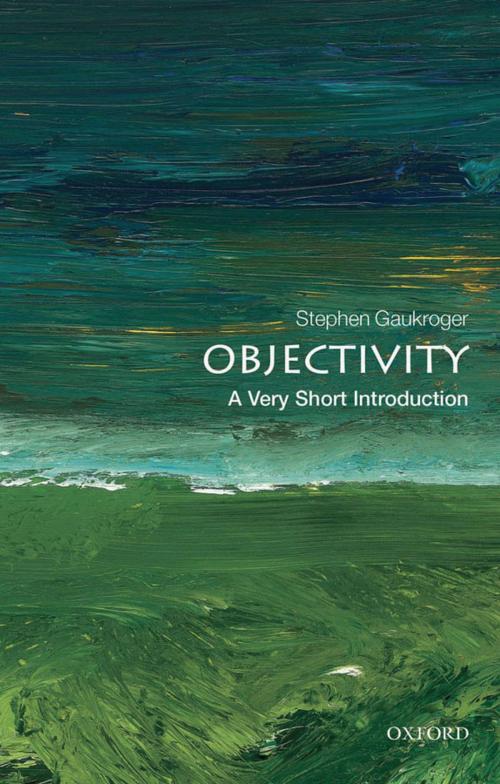Objectivity: A Very Short Introduction
Nonfiction, Religion & Spirituality, Philosophy, Ethics & Moral Philosophy| Author: | Stephen Gaukroger | ISBN: | 9780191642098 |
| Publisher: | OUP Oxford | Publication: | May 24, 2012 |
| Imprint: | OUP Oxford | Language: | English |
| Author: | Stephen Gaukroger |
| ISBN: | 9780191642098 |
| Publisher: | OUP Oxford |
| Publication: | May 24, 2012 |
| Imprint: | OUP Oxford |
| Language: | English |
- Is objectivity possible? - Can there be objectivity in matters of morals, or tastes? - What would a truly objective account of the world be like? - Is everything subjective, or relative? - Are moral judgments objective or culturally relative? Objectivity is both an essential and elusive philosophical concept. An account is generally considered to be objective if it attempts to capture the nature of the object studied without judgement of a conscious entity or subject. Objectivity stands in contrast to subjectivity: an objective account is impartial, one which could ideally be accepted by any subject, because it does not draw on any assumptions, prejudices, or values of particular subjects. Stephen Gaukroger shows that it is far from clear that we can resolve moral or aesthetic disputes in this way and it has often been argued that such an approach is not always appropriate for disciplines that deal with human, rather than natural, phenomena. Moreover, even in those cases where we seek to be objective, it may be difficult to judge what a truly objective account would look like, and whether it is achievable. This Very Short Introduction demonstrates that there are a number of common misunderstandings about what objectivity is, and explores the theoretical and practical problems of objectivity by assessing the basic questions raised by it. As well as considering the core philosophical issues, Gaukroger also deals with the way in which particular understandings of objectivity impinge on social research, science, and art. ABOUT THE SERIES: The Very Short Introductions series from Oxford University Press contains hundreds of titles in almost every subject area. These pocket-sized books are the perfect way to get ahead in a new subject quickly. Our expert authors combine facts, analysis, perspective, new ideas, and enthusiasm to make interesting and challenging topics highly readable.
- Is objectivity possible? - Can there be objectivity in matters of morals, or tastes? - What would a truly objective account of the world be like? - Is everything subjective, or relative? - Are moral judgments objective or culturally relative? Objectivity is both an essential and elusive philosophical concept. An account is generally considered to be objective if it attempts to capture the nature of the object studied without judgement of a conscious entity or subject. Objectivity stands in contrast to subjectivity: an objective account is impartial, one which could ideally be accepted by any subject, because it does not draw on any assumptions, prejudices, or values of particular subjects. Stephen Gaukroger shows that it is far from clear that we can resolve moral or aesthetic disputes in this way and it has often been argued that such an approach is not always appropriate for disciplines that deal with human, rather than natural, phenomena. Moreover, even in those cases where we seek to be objective, it may be difficult to judge what a truly objective account would look like, and whether it is achievable. This Very Short Introduction demonstrates that there are a number of common misunderstandings about what objectivity is, and explores the theoretical and practical problems of objectivity by assessing the basic questions raised by it. As well as considering the core philosophical issues, Gaukroger also deals with the way in which particular understandings of objectivity impinge on social research, science, and art. ABOUT THE SERIES: The Very Short Introductions series from Oxford University Press contains hundreds of titles in almost every subject area. These pocket-sized books are the perfect way to get ahead in a new subject quickly. Our expert authors combine facts, analysis, perspective, new ideas, and enthusiasm to make interesting and challenging topics highly readable.















